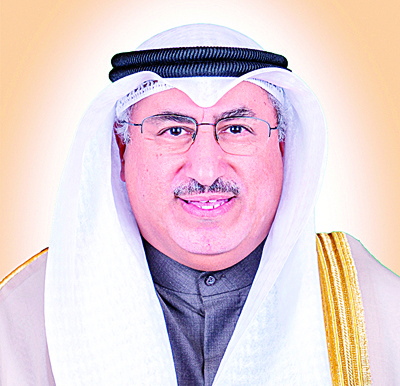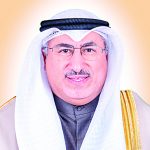KUWAIT: Kuwait supports any decision taken by OPEC+ based on "consensus" among member nations, Oil Minister Dr Mohammad Al-Fares said. "OPEC+ follows a well-established process in order to reach its decisions whereby, the Joint Ministerial Monitoring Committee carefully considers and deliberates on oil market data," the minister said on Sunday.
"OPEC+ follows a well-established process in order to reach its decisions whereby the Joint Ministerial Monitoring Committee (JMMC) carefully considers and deliberates on oil market data and analysis developed and presented at the time by the Joint Technical Committee (JTC) and the OPEC Secretariat, before issuing any recommendation to the OPEC and Non-OPEC Ministerial Meeting (OPEC+)."
"Any recommendations by the JMMC are in turn discussed during the OPEC+ meeting, in order to reach consensus decisions," Dr Fares said. "As in all past occasions, all aspects related to the market conditions are carefully reviewed and all options are explored before the appropriate and collective decision is taken by the group. As always, the State of Kuwait supports the consensus within the OPEC+ group, as all options are explored, and confirms that no decisions have been reached yet with regards to the forthcoming meetings on September 1."
A possible increase in oil output agreed upon last month could be reconsidered ahead of a meeting tomorrow, he added. The OPEC basket went up by 73 cents to 71.48 per barrel (pb) on Friday as opposed to $70.75 pb the day before, said the bulletin for the international organization yesterday. Annual price of the OPEC basket in 2020 was at $41.47 pb.
The OPEC+ member states are scheduled to hold a ministerial meeting tomorrow to reassess the market status with respect of demand, supplies and prices. The OPEC basket consists of Saharan Blend (Algeria), Girassol (Angola), Djeno (Congo), Zafiro (Equatorial Guinea), Rabi Light (Gabon), Iran Heavy (Islamic Republic of Iran), Basra Light (Iraq), Kuwait Export (Kuwait), Es Sider (Libya), Bonny Light (Nigeria), Arab Light (Saudi Arabia), Murban (UAE) and Merey (Venezuela).
Investment opportunities
Separately, the Organization of Arab Petroleum Exporting Countries (OAPEC) said yesterday the Arab region has promising hydrogen investment opportunities thanks to its proximity to targeted markets. In a working paper during the second Edition MENA Energy meet held in Oman, the OAPEC's Secretariat said the Arab region is close to European markets and has long-lasting economic partnerships with them.
In addition, there are deep-rooted strategic relationships between national oil companies and global energy corporations, the organization added. Grey and blue hydrogen production costs in the Arab region are so low that they only range between $1 and 1.5 per kg, it said, noting that the Arab region is rich in renewable energy used in green hydrogen production.
It pointed out forecasts that demand for hydrogen will skyrocket up to 650 million tons annually by 2025 from merely 72 tons per year at present. Leading industry experts, decision makers, policy makers and government officials are attending the two-day virtual meeting to discuss current challenges and business opportunities, develop market strategies, share their knowledge, deliberate approaches and identify solutions aimed at shaping the future of the energy sector. - KUNA




